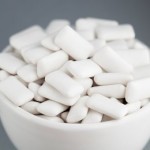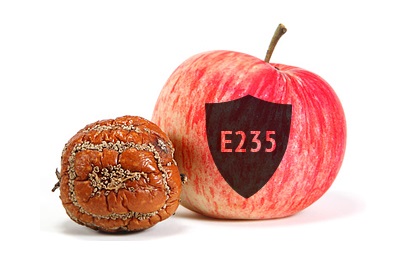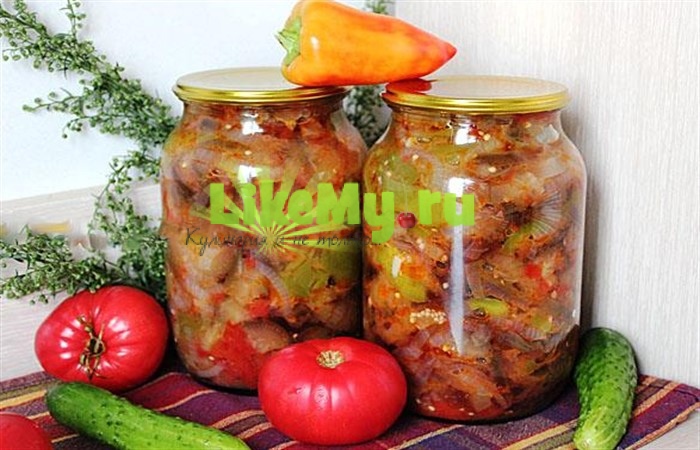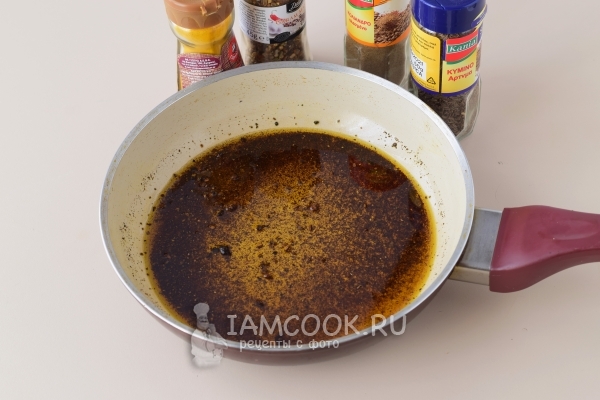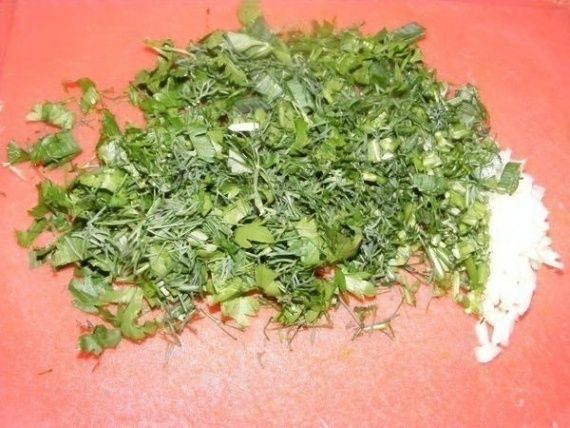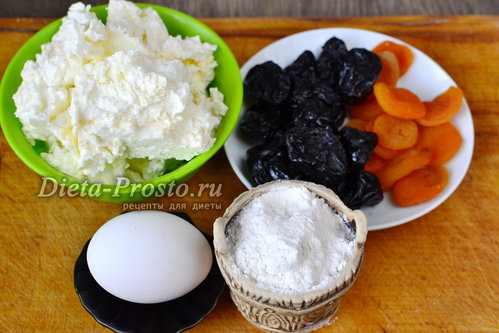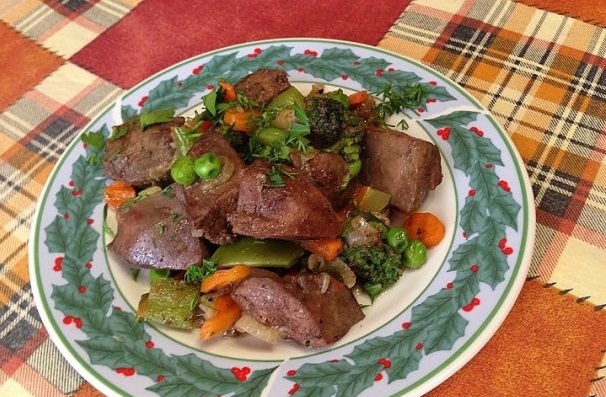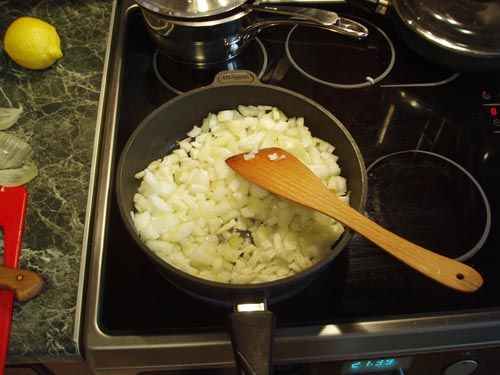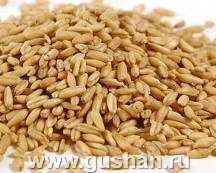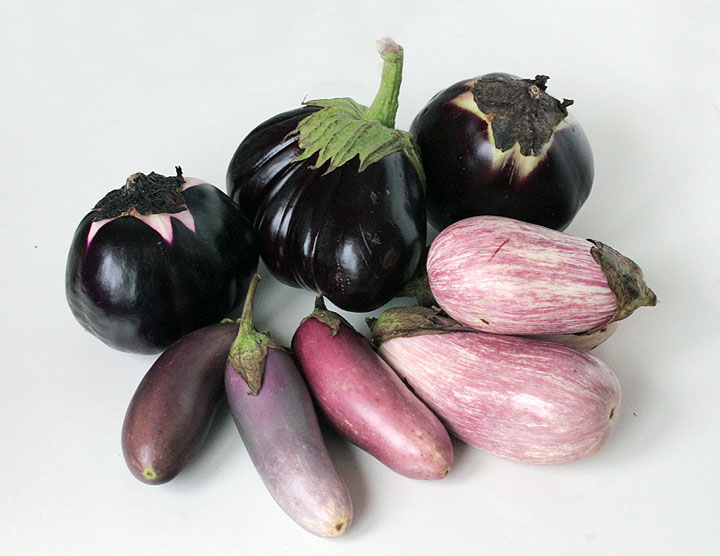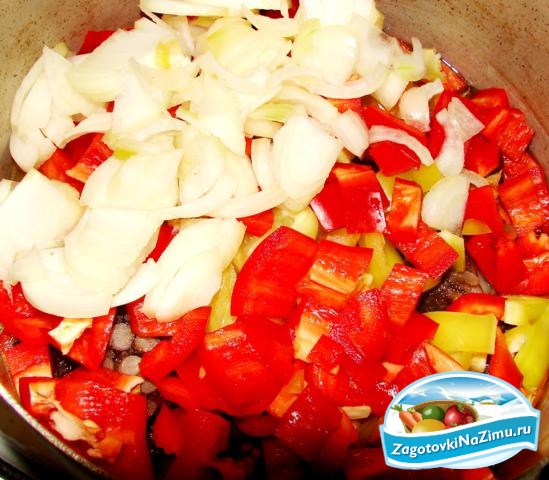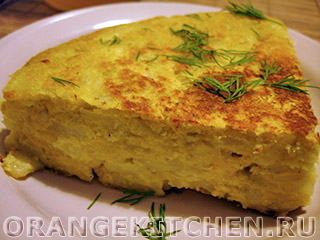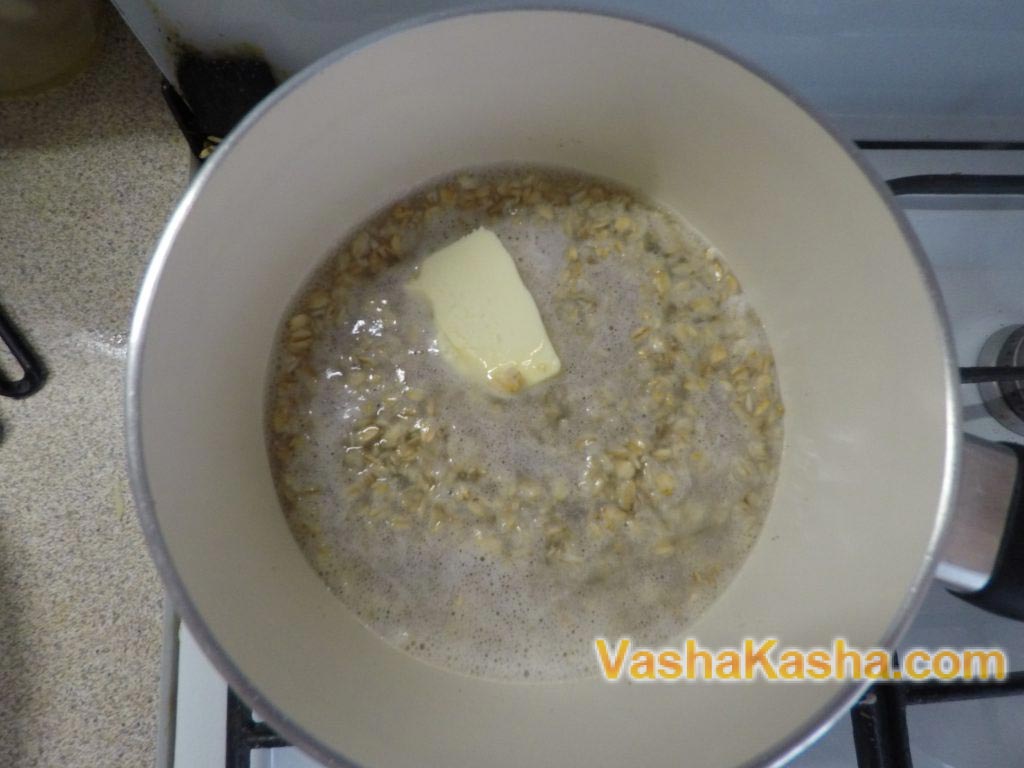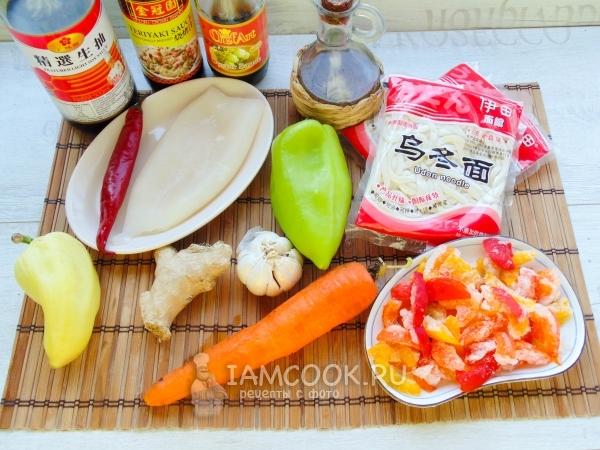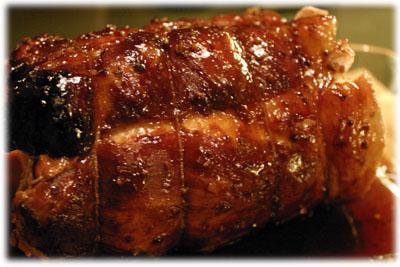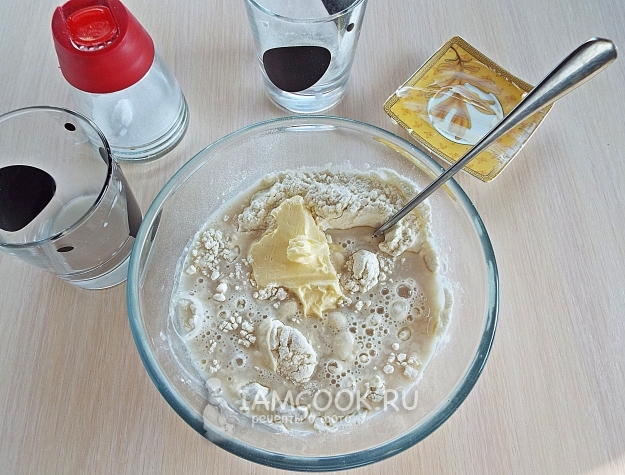What is bergamot, its beneficial properties. Black tea with bergamot
When it comes to bergamot, the famous Earl Gray tea is recalled. Bergamotic aromatic essential oil is used to produce it and give tea a citrus flavor. Get it from the processed peel of the bergamot fruit. Bergamot is called the monarda flower.
This medicinal plant is a wonderful honey plant. It contains a huge amount of essential oils and nutrients. The flower has amazing taste. Its leaves exude a pleasant lemon-mint aroma, which is completely similar to the aroma of bergamot fruits. Thanks to this analogy, the monard was called the “garden bergamot”.
Garden bergamot has a lot of amazing properties. In South America, the miraculous monard was considered an “Indian medicine” that cures many ailments. How to use the plant in our homeland, and how to use it for medicinal purposes, we will consider further.
Natural composition
The beneficial properties of the miraculous plant were discovered by the Indians. Bergamot was used to treat wounds, burns, snake bites and insects. An infusion of bergamot leaves washed the oral cavity to eliminate toothache. The medicinal properties of bergamot grass are due to the huge amount of nutrients that make up the composition.
The chemical composition of the grass is represented by:
- vitamins - C, B1, B2;
- antioxidants;
- essential oils;
- retinoids;
- phenols (imol, carvacrol, p-cymol);
- sabinene;
- cineol;
- limonene;
- myrcene.
Bergamot is rich in thymol - a substance with a powerful antiseptic and analgesic effect. Thymol is an excellent disinfectant, analgesic. It has a sharp specific aroma and astringent taste.
Also, medicinal decoctions are used to treat infectious and inflammatory processes on the skin. About how bergamot is used at the present time, and what properties of this plant are revealed, we will consider further.
Benefit for health

Bergamot monarda has amazing properties. This plant contains a lot of nutrients, which makes the application especially beneficial for health. The aroma of a flower frightens off insects, perfectly invigorates and increases the overall tone of the body. Its properties are similar to grass.
The healing properties of garden grass are very extensive. Health benefits of bergamot:
- It has a general strengthening effect.
- Lowers blood glucose.
- Bergamot tea is indicated for type 2 diabetes.
- Normalizes the menstrual cycle.
- It is an excellent antidepressant.
- It is used to prevent colds, flu, SARS, bronchitis, tonsillitis and sinusitis.
The use of bergamot in the form of teas and infusions is especially useful during the rehabilitation period after operations, chemotherapy and various serious illnesses.
Garden bergamot is effectively consumed in the form of decoctions or infusions during the PMS period. It eliminates unpleasant symptoms and improves the standing of the body.
Bergamot monarda is effective in the treatment of respiratory diseases. Tea with herb leaves has an expectorant effect, effectively liquefies sputum, removing from the bronchi.
Bergamot herb is a fairly strong antiseptic. Due to its antiseptic effect, it is used for the production of anti-inflammatory anti-infective drugs.
Bergamot monarda is an excellent medicine in the fight against stress, neurosis and depression. Pleasant, spicy aroma calms the nervous system, provides a good mood. Bergamot tea perfectly balances the emotional state.
The benefits of bergamot are its retinoids - substances that, like vitamin A, strengthen the structure of the hair and also improve the condition of the skin and nails.
Bergamot application

In Europe, bergamot monarda became known only in the 20th century. The plant was brought from South America and gained wide popularity due to the similarity of taste and aromatic qualities with the fruits of a bergamot tree (artificially crossed with orange and citron).
The tea industry uses monarda leaves (garden bergamot) and aromatic essential oil of the fruit of the bergamot tree.
Bergamot was chosen by gardeners and landscape decorators. They use the flower to decorate garden plots and various natural landscapes.
Bergamot found application in cooking. Fresh leaves of the plant are used for food, adding as a spice to salads, soups and meat dishes.
In folk medicine, bergamot herb and essential oil are used for therapeutic and prophylactic purposes. Also used for making healthy teas, medicinal infusions and decoctions.
Bergamot herb essential oil

Bergamot essential oil (monarda), which has many medicinal properties, can be purchased at the pharmacy or prepared independently at home.
Cooking oil
Homemade aromatic essential oil will be different from a pharmacy made using special technology (by cold distillation). But a self-made product is very good for health. It retains nutrients and aroma, despite the heat treatment.
To cook properly bergamot herb essential oil at home, follow the steps described in the recipe:
- Grind leaves and flowers torn during flowering.
- Pour olive oil in a proportion of 1:10.
- Then mix the mixture and cook in a water bath (over low heat) for two hours.
- After time, let the oil cool, then filter it thoroughly.
- Next, pour the product into a sealed glass container and store in a cool dark place.
Monarda aromatic oil is the only essential aromatic product that protects the body from radiation. This makes the application particularly effective in radiation sickness. During radiation therapy, it is recommended to drink bergamot oil in a small course.
Folk remedies with bergamot oil

Bergamot herb essential oil is very beneficial. It is used to treat various infections and diseases, including skin diseases. Its properties have a positive effect on the skin of the face and hands and is suitable for use in hair masks.
With genitourinary infections in men and women it is recommended to add 2-3 drops of aromatic oil to teas. It is recommended to use them 3-5 times a day.
For coldsyou need to mix 3-4 drops of essential oil in a glass of warm water. With a severe cold, it is recommended to instill this mixture in the sinuses within three days. With cough and sore throat with the same solution, in the form of heat, you can gargle several times a day.
With insomnia healing, relaxing baths help. To do this, one tablespoon of bergamot oil must be added to a warm bath. The procedure should last no more than 15-20 minutes. Water temperature - 37-39 degrees.
For headache Bergamot oil is rubbed into whiskey, similar to lavender and tea tree oil. With fungal infections skin a few drops of aroma oil are rubbed into the infected skin. The procedure is carried out twice a day, in a course of seven to ten days.
Bergamot oil is also used in aromatherapy. It is used to disinfect rooms and cleanse the air of germs and bacteria. Bergamot oil is also added to creams and skin care products. Baths are sometimes added as an antiseptic and relaxing oil.
Garden Bergamot Tea

When it comes to tea with bergamot, we recall Earl Gray, which contains peel oil from a fruit bergamot tree. However, in some countries, monarda is used in the preparation of tea.
Tea meal is almost no different from traditional:
- Black leaf tea is brewed.
- Add a few monard flowers.
- Use both in dried and fresh form.
- In addition to inflorescences, several green leaves are added to enhance the taste of the drink.
Bergamot tea prepared in this way has a pleasant citrus lemon-mint aroma reminiscent of Earl Gray. This drink is incredibly healthy.
Tea with garden bergamot normalizes blood pressure, improves cardiac activity and the nervous system.
Such a drink fights depression and bad mood. Bergamot tea is recommended to be used to increase the protective functions of the body during colds.
Bergamot tea is an excellent way to improve the functioning of the cardiovascular system. It improves lipid metabolism and normalizes blood cholesterol, therefore it is recommended for people suffering from atherosclerosis.
Medicinal use

Bergamot due to its medicinal properties is especially appreciated in alternative medicine. Monarda gained wide popularity due to its regenerative, antimicrobial, hemostatic, immunostimulating and anti-inflammatory action.
For medicinal purposes, all parts of the plant are used: inflorescences, leaves and stems.
For healing wounds and burns take a few fresh leaves of garden bergamot and grind them so that juice is formed. We treat damaged skin areas several times a day with fresh aromatic juice: wounds, burns, insect bites.
For fractures chopped dried or fresh bergamot grass. Next, follow the step-by-step recipe:
- 2 tbsp. l pour from the obtained medicinal raw materials into a glass container.
- Pour one liter of boiling water.
- Close the lid and let it brew for half an hour.
- Then strain the infusion.
- Drink ¼ cup three times a day.
Also, medicinal infusion is used as lotions and compresses, applied to sore spots.
For the treatment of salmonellosis we take two tablespoons of bergamot herb and steam them in two glasses of boiling water. Let it brew for two hours, then filter. We consume one glass 4-5 times in 24 hours.
For colds broth garden bergamot gargle. For this, 2-3 tbsp. l leaves and inflorescences are poured with one liter of water and boiled in a water bath for 10 minutes. When it cools down, it is filtered and used warmly to rinse the oral cavity. The procedure should be carried out 4-5 times a day. It is also recommended to use hot broth as inhalation.
For respiratory diseases (asthma, pneumonia, tuberculosis) prepare a decoction. Three tablespoons of bergamot are brewed in a liter of boiling water and insisted for 2-3 hours. Then they drink 100 ml 2-3 times a day.
For the treatment of the above diseases, it is recommended to use bergamot inhalations. 5-10 drops of bergamot essential oil are added to the pan with hot water, covered with a towel and inhaled by the mouth of the vapor. The procedure usually lasts 10-15 minutes.
Contraindications

Despite the fact that the bergamot herb is very useful for the body, if used improperly and if safety measures are not followed, it can harm health in the form of various adverse reactions.
The main contraindications:
- pregnancy and lactation;
- tendency to allergic reactions;
- high blood pressure (hypertension);
- stomach ulcer and 12 duodenal ulcer;
- individual intolerance;
- reception is not recommended for children under 12 years.
Bergamot contains thymol, which in some cases can harm the body. This component is contraindicated in:
- ulcer and erosion of the gastrointestinal tract;
- heart failure;
- with diseases of the liver and kidneys, etc.
Collection and Harvesting

If the evergreen bergamot tree due to climatic conditions is not available for cultivation in our latitudes, then the herbaceous bergamot monarda is adapted to the conditions of the Russian climate. The plant unpretentiously and calmly takes root at the cottage of any gardener.
For medicinal purposes, garden bergamot is harvested during the flowering period. At this time, the leaves and stems contain the maximum amount of essential substances and are especially fragrant. In the same period, the collection of inflorescences takes place. They are cut at a level of 20 cm from the ground, then dried well.
Drying of raw materials takes place under a special canopy. The herbs are spread on a paper surface and mixed periodically to eliminate the rotting process. After the raw material has dried, it is crushed and placed in linen bags or a glass container.
Garden bergamot is a great alternative to the bergamot tree. The grass has a bright citrus flavor, reminiscent of both lemon, lemon balm and orange zest, and a spicy aroma. It is good for health and is available for growing at home.
Bergamot is ubiquitous, although it is almost impossible to meet it in our country in its raw form. We can get acquainted with the taste and smell of this citrus with the help of essential oils, tea with its addition and other products containing the fruits of the plant. What is the use of bergamot? Today we will try to answer this question, as well as find out whether it is capable of harming the human body.
Properties of bergamot and its composition
Bergamot is a plant bred by breeders of the genus Citrus. It turned out by crossing a citron and an orange. A very useful plant for different types of industry, also used in the rituals of Asian shamans. Essential oils are made from flowers and fruits, which are subsequently used by perfumes, medicine, and the food industry (for flavoring tea).
The composition of the essential oil includes more than 300 very valuable components, including:
- linalipacetate;
- linalool;
- limonene;
- camphene;

Bergamot refers to citrus fruits.
- citral;
- nerol;
- bergaptol;
- bergapten;
- methyl anthranilate, etc.
Due to the antiseptic properties of bergamot, it is used to eliminate infection in the affected areas of the skin. Good as an antifungal and antiviral agent.
The beneficial and harmful effects of bergamot on the body
Bergamot can have a number of beneficial effects on the human body, but all this provided that it is dosed:
- stimulates the production of active processing substances in the digestive tract, due to which it normalizes the digestion process;
- increases the body's resistance to viral infections;
- prevents muscle cramps;

Bergamot has a positive effect on the whole body
- raises the degree of concentration of attention;
- contributes to the improvement of brain activity;
- increases the general tone;
- helps to quickly reduce fever;
- helps to get rid of feelings of fear and anxiety;
- helps relieve stress at the end of the working day;
- is a powerful aphrodisiac.
Beauticians have also identified a number of beneficial properties of bergamot. So, oil based on its flowers and leaves will help with:
- problems with dandruff;
- insect bites (relieves irritation and itching);
- fungal diseases of the skin of the legs;
- acne (reduces inflammation and cleanses the pores of the skin).
Important! In case of violation of the process of hair growth, their weakness or loss, rub bergamot oil into the scalp. The bergapten contained in it will help the hair bulb recover.
Note that bergamot has a tonic effect, so it is highly recommended not to use for people suffering from insomnia. Avoid contact with it in case of a diagnosed allergy to citrus fruits. And children under 12 years old are not even recommended to inhale the aroma of this product. Pregnant women should also be careful with bergamot - it can tone the uterus and cause it to contract.
Bergamot Tea
Tea is an integral part of our diet. Bergamot tea is one of the most popular drinks in our latitudes. It not only has a wonderful aroma, but also invigorates well in the early morning. As a flavoring, tea manufacturers use essential oil.

Bergamot tea has a tonic effect
Daily use of tea with bergamot helps relieve stress and increase overall tone, as well as improve appearance, acquire a healthy complexion and smooth wrinkles. Also, regular tea parties will help get rid of acne and blackheads.
Advice! Going to sleep at work? Have a cup of hot tea with bergamot. He will give confidence and strength for further work.
But it should be remembered that everything is useful in moderate doses. An overdose of thymol contained in bergamot can cause a number of negative consequences, including stomach pain, dizziness, nausea, and vomiting.
Bergamot tea: video
Bergamot: photos












Bergamot - One of the most popular tea supplements. Many people know the taste of tea with bergamot, but not everyone imagines what bergamot is, and due to which tea acquires a well-known aroma.
What is bergamot?
What is bergamot added to tea? Some ask a similar question, make different assumptions, give free rein to their imagination. Others, more inquisitive ones, are looking somewhere for information about this, for example, on the Internet. Perhaps you got here, for this reason.
Bergamot - a plant belonging to citrus fruits, the fruits of which in their appearance resemble something between a lemon, lime, orange. Bergamot is a hybrid resulting from the crosses of citron and orange.
According to one version, this plant got its name in honor of the Italian city. IN Bergamo and they began to grow and sell it for the first time.
Despite the fact that the pulp of the bergamot fruit has a pleasant taste, reminiscent of lemon, it is still more popular oilmade from bergamot peels.

Back to the bergamot tea. Actually, this is a mixture of Ceylon and Indian tea varieties, in which bergamot oil was added.
The most famous type of tea with bergamot is Earl Gray. Named after Charles Gray, which in the 19th century popularized this tea in Europe.
Bergamot tea - harm and benefit
Bergamot tea, what is it good for? Are there any contraindications or undesirable effects? Briefly and in order, we will answer some questions.
It is believed that bergamot oil calms the central nervous system, improves the digestive tract, has antiseptic properties.
In combination with black tea, a special drink is obtained that has a versatile effect on the body. Black tea invigorates, increases concentration due to caffeine, and bergamot oil relieves stress and improves mood.
Can bergamot tea be pregnant
Often women are concerned about a similar topic, since tea is delicious, but no matter how negatively it affects the unborn child.

Nursing mothers ask a similar question: is it possible to use tea with bergamot to a nursing mother? And for those, and for others we will try to answer briefly.
At first, bergamot is a citrus plant, which means that like all citrus fruits, bergamot is also an allergen.
Secondlymany essential oils are contraindicated during pregnancy, especially if a pregnant woman:
- has vaginal bleeding at any stage of pregnancy
- has cardiovascular disease
- has thyroid abnormalities
- has diabetes
Thirdly, Black tea. Black tea contains caffeine. And all caffeinated foods and drinks should be limited in your diet during pregnancy. You can read more about this problem in this article:.
Conclusion: everything is very individual. Consult a physician.
How to make bergamot tea
Making tea with bergamot is no different from traditional methods of brewing black tea.
Put 1 teaspoon tea in one teaspoon of tea in a teapot. Pour the boiling water. Insist 3-4 minutes.
 Many have learned about bergamot (not a sort of pears, but a plant from tropical countries) thanks to its unique refreshing aroma.
Many have learned about bergamot (not a sort of pears, but a plant from tropical countries) thanks to its unique refreshing aroma.
The hybrid obtained by crossing a citron (a close relative, but with small succulent fruits of a sufficiently large size) and orange (in turn, a hybrid of pomelo and mandarin, small with a sour-bitter taste), was called a bergamot by the name of the city near which it was supposedly started mass cultivate - Italian Bergamo.
A distinctive feature of bergamot is the abundance of essential oil contained in all parts of the plant, and giving gourmets the same aroma recognizable to all.
The mentioned bergamot pear variety has nothing to do with citrus bergamot, except for the pear-shaped form inherent in both types of plant fruits.
Like any other citrus, bergamot has a number of unique features that are beneficial for the body, which will be discussed later.
What does he eat with?
This is not to say that bergamot is a favorite treat for many. The bitter-sour taste of its pulp, hidden under a thick layer of juicy peel, which, by the way, is very easy to separate, is very specific.
In its pure form, bergamot is most often used for making jams or preserves, candied fruits, marmalade and other desserts, involving the use of a large amount of sugar that can compensate for the fruit's natural acid. 
They are prepared directly in the places of growth of this evergreen shrub. Fresh bergamot fruits are not exported for lack of demand for them, which cannot be said about the derivative of this amazing plant - essential oil.
It is for this valuable raw material that bergamot is mainly grown.
All parts of the bush are literally saturated with a rich aroma: flowers, bark, leaves. But the richest source of odorous extract is the peel of the fruit.
From it, traditionally by hand, squeeze precious oil, which is an excellent raw material for the cosmetic, food, perfumery, chemical and pharmaceutical industries. The scope of extracts from bergamot is incredibly wide.
Perfumes, essences, medicines, cosmetics, food, etc.
The biochemical composition of both citrus and its essential oil is highly active and can help to solve a large number of various health problems, therefore the presence of bergamot ether in any product guarantees a healing effect.
After studying the medicinal properties, bergamot became popular all over the world and the British played a significant role with their famous teas “Earl gray” and “Lady Gray”, which, as you know, include dried slices of bergamot peel.
A bit of history
The homeland of the hybrid plant is considered to be Asian territories, presumably China.
The tall shrub does not tolerate abrupt changes in the temperature regime and feels good only where it is constantly warm and in abundance of moisture - ideally this is the subtropics.
 With success, the plant is cultivated in the Caucasus, in India, in the Mediterranean countries. Italy is considered the recognized world leader in the cultivation of bergamot and the production of healing essential oils.
With success, the plant is cultivated in the Caucasus, in India, in the Mediterranean countries. Italy is considered the recognized world leader in the cultivation of bergamot and the production of healing essential oils.
Until the 17th century, bergamot did not have the recognition that it has today. The situation was corrected by perfumers who, on the basis of squeezed citrus oil, began to produce perfume water called “Royal”.
So bergamot became the ancestor of the world's first colognes, and remains an unchanged ingredient in many modern perfumes.
The healing properties of plant parts were also given much attention. Scientists and amateurs for a long time carefully studied the effect of bergamot oils on the body and came to the conclusion that it’s not only a wonderful raw material for perfumes, but also an amazing medicine.
In this regard, bergamot has become even more popular and popular: it began to be widely used first in folk, and then in traditional medicine.
Written evidence (ancient medical guides) and ancient formulations of medicines from bergamot have survived to our days.
Chemical composition
Bergamot with a very low calorie content (only 35 kilocalories in 100 grams of pulp) has a rich and rich vitamin and mineral composition. Its nutritional value is close to an orange: very little fat (0.2 g), a lot of water, fiber and carbohydrates.
However, despite the apparent diet, the use of bergamot in its natural form is almost impossible due to the low palatability of the fruit.
In the human body, the whole bouquet of beneficial substances of bergamot comes mainly from the mentioned essential oil, as well as from fresh or dried peel of citrus.
Among the most valuable chemical compounds in bergamot are: 
- almost all B vitamins, vitamin C and E, beta-carotene;
- a large number of saturated and unsaturated fatty acids;
- in abundance of manganese, selenium, phosphorus, calcium, salts of copper, iron, zinc, potassium.
Bergamot oil is rich in methylanthranilate, terpineol, limonene, caprylic acid, camphene, bergapten, citral, etc.
Why bergamot is useful, and where is it better to use? It’s worth mentioning right away that not only the fresh bergamot fruit has a therapeutic effect, but also, of course, its peel and essential oil.
1. One of the main and valuable properties of bergamot is its antiseptic effect. The oil perfectly heals and disinfects wounds of various degrees of complexity, it is used to treat absolutely all skin rashes and diseases.
2. Bergamot is famous for its hair-strengthening effect - oil, peel or pulp can simply be rubbed into the scalp. This will help prevent and stop hair loss, as well as get rid of oily seborrhea.
3. For colds and viral diseases, inhalations with bergamot oil, gargling and lavage of the sinuses are indicated.
4. It copes well with cough, dilutes sputum, promotes its withdrawal from the bronchi and lungs.
5. The plant has a pronounced antipyretic effect, used for hyperthermia.
6. Bergamot is the best therapeutic and prophylactic agent for inflammatory processes in the oral cavity. It disinfects, heals, aromatizes.
7. The plant is an aphrodisiac, equally intensively affects men and women, enhances libido, improves the quality of intimate relationships.
8. Increases lactation.
9. Bergamot aroma acts as a tonic for the nervous system - relieves depressive states and fears, nervousness, raises the mood, improves worldview, memory and concentration, relieves the feeling of overwork. Recommended after intense mental work.
 10. Eliminates spasms in the gastrointestinal tract, improves peristalsis, promotes more correct and complete digestion.
10. Eliminates spasms in the gastrointestinal tract, improves peristalsis, promotes more correct and complete digestion.
11. It helps very well with vegetative-vascular dystonia, improves the condition of blood vessels, reduces the number of seizures, and ensures good health.
12. Relieves itching and redness from insect bites, burns.
13. Helps with herpes, eczema, psoriasis, skin ulcers, acne.
14. Beauticians actively use bergamot oil to combat excessive oily skin, enlarged pores, and sweating.
15. Has a pronounced antiviral effect, strengthens the body.
16. Oil is used for anti-cellulite massage, weight correction procedures and figure.
17. It is considered a proven antifungal agent for thrush and other diseases caused by various fungi.
18. Has an anthelmintic effect.
19. With regular use, it maintains cholesterol at an acceptable level and does not allow it to rise.
Bergamot is also known to relieve muscle pain and fatigue.
Bergamot - harm
In nature, plants are quite rare, which are practically harmless to the body and one of them is bergamot.
It has only an insignificant part of general contraindications - children under 6 years old, people with individual intolerance, allergies.
Overeating bergamot does not threaten anyone for the already mentioned reasons of a specific taste.
Therefore, indulge yourself more often with the wonderful gift of nature and human hands - bergamot essential oil - and be healthy.
The tart citrus aroma, which is often compared to the smell of cologne, is familiar to lovers of aromatic tea. It smells like bergamot (princely pear). This is a hybrid plant obtained by crossing citron plus orange. The drink, as well as the essential oil, squeezed from flowers, leaves and fruits, is used in the perfumery, food industry, medical cosmetology.
What is this bergamot plant
The Latin name is Citrus bergamia. Belongs to the rutov family, the genus citrus.
What part is added to tea. Add the oil obtained from the peel of the citrus hybrid of Seville orange and pear-shaped lemon. This hybrid was developed around the 15th century near the city of Bergamo, which gave it its name - Bergamo, that is, bergamot.
The plant has a favorable subtropical climate. The main plantations are in Italy (province of Calabria). It is also grown in the Mediterranean and South America.
There is also grass with a smell reminiscent of its aroma - monard.
Other names: lemon mint, bee balm.
Botanists have about twenty varieties of this plant, which perfectly survives in the climatic conditions of the middle zone, but, alas, is less useful.
What does a bergamot look like?
Many of us like to drink bergamot tea, but not everyone knows what it looks like. So, this tree, reaching a height of 10 meters, the branches are covered with long thorns.
Large purple or white flowers have a pleasant, fragrant aroma. The fruit is like a ball or pear, covered with a thick peel. The inner part consists of segments-segments of bitter-sour taste.
Due to the unpleasant taste, the princely pear is practically not used in cooking. Although the craftsmen make candied fruits, jam, marmalade from it, and tea is flavored with oil.
Useful properties of bergamot herb
Monarda leaves are added to salads, meat dishes as a spice.
The beneficial properties of the bergamot herb is that it has a mild analgesic, anti-inflammatory, and also immunostimulating effect.
Some people believe that a miracle herb helps to lose weight, supposedly burns fats.
Extracts with essential oil are added to tinctures for external use, which heal wounds, are effective for fungal diseases, and have antiseptic properties.
How to use essential oil read.

Bergamot: benefits and harms
Since we try to objectively consider all the properties of the plant, we can not fail to note the harm of bergamot. Phytoelixirs and essential oil supplements are contraindicated primarily for allergy sufferers and young children.
In addition, doctors warn of their tonic effect, which causes insomnia, nervous agitation. External remedies are not recommended for people with sensitive skin: pigmentation may occur when exposed to direct sunlight.
The magical properties of bergamot, of course, have not been proven. However, it is often used in "love" magic "for wealth." Perfumes with a note of bergamot are recognized as a powerful aphrodisiac.
And Citrus bergamia increases sociability and optimism, strengthens creativity, cleans the aura. Incense with the addition of essential oil relieves heart melancholy, helps to establish peace of mind. Sprigs, dried flowers and leaves are used in rituals that attract wealth and good fortune.
Bergamot oil properties and applications
Due to its many healing properties, bergamot essential oil is considered almost a panacea. It is used for:
- depression
- halitosis;
- fungal infections;
- flu, colds;
- skin problems, such as eczema, sores and acne;
- burns and insect bites;
By adding a couple of drops to the aroma lamp, you can quickly relax, forget about troubles and sorrows.
Bergamot pear is widely used in cosmetology, both industrial and domestic. There are thousands of recipes, but, alas, we cannot acquaint readers with everyone. We offer the most simple and popular options.
The composition for tanning
Prepare by mixing a tablespoon of liquid honey + three drops of magic oil. If you rub it, you will not burn, but the skin will quickly acquire a pleasant golden hue. Although there is a risk of becoming a bait for flies and bees.
Pore-tightening face cream
Ingredients: egg white + 5 drops of bergamot oil (mix and beat into foam).
Method of use: apply for 5 minutes, rinse with warm water.
Acne cream
Composition: in 7 ml of grape extract add 5 drops of bergamot and thyme.
Method of use: apply for 15 minutes, can be used daily.
If you rub a few drops of the miraculous product daily into the hands and nails, you will soon notice that the skin has become moisturized and has acquired a healthy appearance, burrs and plate defects have disappeared.
Bergamot oil for hair
To make hair vibrant, healthy, shiny add 2-3 drops of oil to your usual shampoo. Just rinse your curls thoroughly, otherwise instead of a luxurious head of hair you will get an aesthetic washcloth. And masks for the scalp will help cope with dandruff.
The antiseptic properties of the plant are used in gynecology. Lovers of home recipes will douche them with thrush, cystitis.

Bergamot tea, benefits and harms
A fragrant drink - tea with bergamot, not only has a pleasant taste, is also characterized by medicinal properties. It enhances appetite and improves the functioning of the stomach, increases immunity, lowers temperature, helps with viral, colds, relieves fungi, reduces stress, improves mood.
Which tea is better: black or green can be read.
They are flavored with black and green tea. The first has a beneficial effect on the skin, heals and rejuvenates it, it is advised to drink it in the morning or in the middle of the working day for tonus. Green tea is less popular, due to the high content of caffeine in it, the usefulness of the component under consideration is reduced.
I bring to your attention an interesting video with Elena Malysheva:
Note recipe
Pour high-quality large-leaf tea into a can, add a scatter of 5-7 drops of oil, close tightly. For 5 days, do not tear it off, periodically shake and turn it over.
Such welding is much better than ready-made options, especially packaged.
